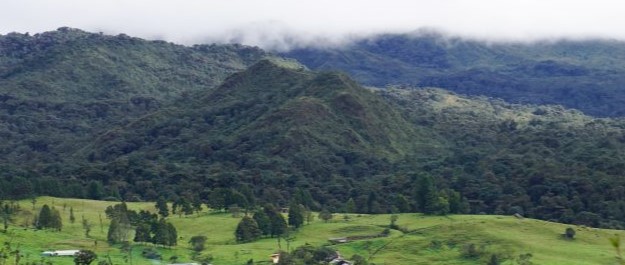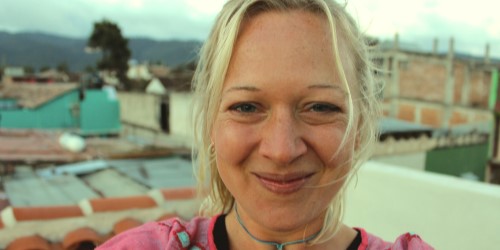Understanding the resilience of Colombian forest biodiversity

After a long history of bloody conflict, there’s understandable pressure to make Colombia’s damaged forests more economically productive. But with so little data on these environments, it’s hard to predict the potential impacts.
The challenge
While the Andean forests of Colombia have undergone significant change over thousands of years, there’s scarce detail about their baseline vegetation and its response to that change. The peace treaty of 2016 that officially ended decades of conflict in the country has brought demand for further adaptation – cultivating areas previously inaccessible due to security issues, for example.
Across the world, there’s very little data about the biodiversity, ecosystems and involvement in carbon and energy cycles of degraded forests. Without that data, how can policymakers take informed decisions to manage these forests sustainably while still providing maximum benefit to the communities that use them?
What we're doing
Our BioResilience project involves local communities, ecologists, palaeoecologists, cultural geographers and artists working together to determine how resilient Colombian forest ecosystems are to environmental and climatic changes and how forest vegetation has responded to challenges in the past.
Working in the Cundinamarca and Boyacá regions, we’ll establish new permanent monitoring sites and network others to evaluate biodiversity and measure the impact of transformative processes, such as fire, on the forests. We’ll map their ecological resilience across millenia by examining the historical indicators found in lakes and soil.
Additionally, the role of culture and local knowledge in resource use and the ways social changes affect ecosystems are currently understudied. So, in conjunction with local communities, we’ll investigate the social memory of forests to gain insights into the effects of conflict, dispossession, displacement and forest-based livelihoods.
How it helps
Our findings will aid understanding of what forest degradation means for Colombian society. Because our results will be scalable, we’ll be helping to inform decisions about policy, conservation and management not just of these ecosystems, but of degraded forests throughout Colombia and beyond – tropical forest degradation affects around 500 million hectares globally and is an increasingly important driver in the global carbon cycle.
What we discover will be vital to policymakers and communities, who will retain full access to the data we co-create, in trying to assess whether forests and forest agriculture, such as coffee and cacao, can withstand a changing climate.
The outputs of the BioResillience project are also highly important to international frameworks aimed at reversing the effects of forest degradation on biodiversity. Not least because the present uncertainty in this area means global targets for CO2 emissions may not be sufficiently ambitious.
Investigators
Principal Investigator - Ted Felpausch (Exeter)
Social Science Lead - Dr Naomi Millner (Bristol)
Image credit: Seila Fernandez Arconada
 Lead researcher profile
Lead researcher profile
Dr Naomi Millner, Senior Lecturer in Human Geography
Related research centres
Partner organisations
- University of Exeter
- Humboldt Institute
- Universidad de los Andes
- Universidad del Rosario